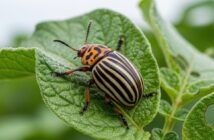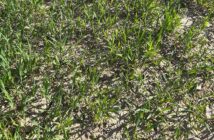Adding Pangaea Biosciences’ Booster has shown improved insecticide performance in Czech and Polish oilseed rape trials.
According to the company, the results revealed reductions in cabbage stem flea beetle (CSFB), brassica pod midge, winter stem weevil and seed weevil.
“We have many practical examples to demonstrate that the addition of Booster to a pyrethroid insecticide can obviate resistance,” says Pangaea Biosciences account manager Charles Tilbury.
The active ingredient in Booster was first identified at Rothamsted Research in the 1950s as something that deactivates or blocks the metabolic pathways responsible for pesticide breakdown.
It leaves the pest in a hypersensitive state, meaning that the pesticide will kill even the most resistant types. According to Charles, this means that Booster could rejuvenate older chemistry, which would be a huge benefit to growers.
Pangaea Biosciences has reportedly optimised the formula of Booster, improving both its stability and uptake, resulting in greater efficacy from the partnered insecticide.
It was trialled at five Polish sites with a range of insecticides. With a tank mix containing 300ml/ha of Booster, resistance to the insecticide was reportedly overcome. Further commercial use in the Czech Republic and Poland has shown that when applied at night, Booster has also been effective against CSFB.
“Resistance is a major problem in the control of insect pests in oilseed rape across Europe. It is a significant threat to global food security.
“The ability to bring back a range of chemistries that have all started to fail in the market due to resistance problems should have enormous appeal to farmers all over the world,” adds Charles.




